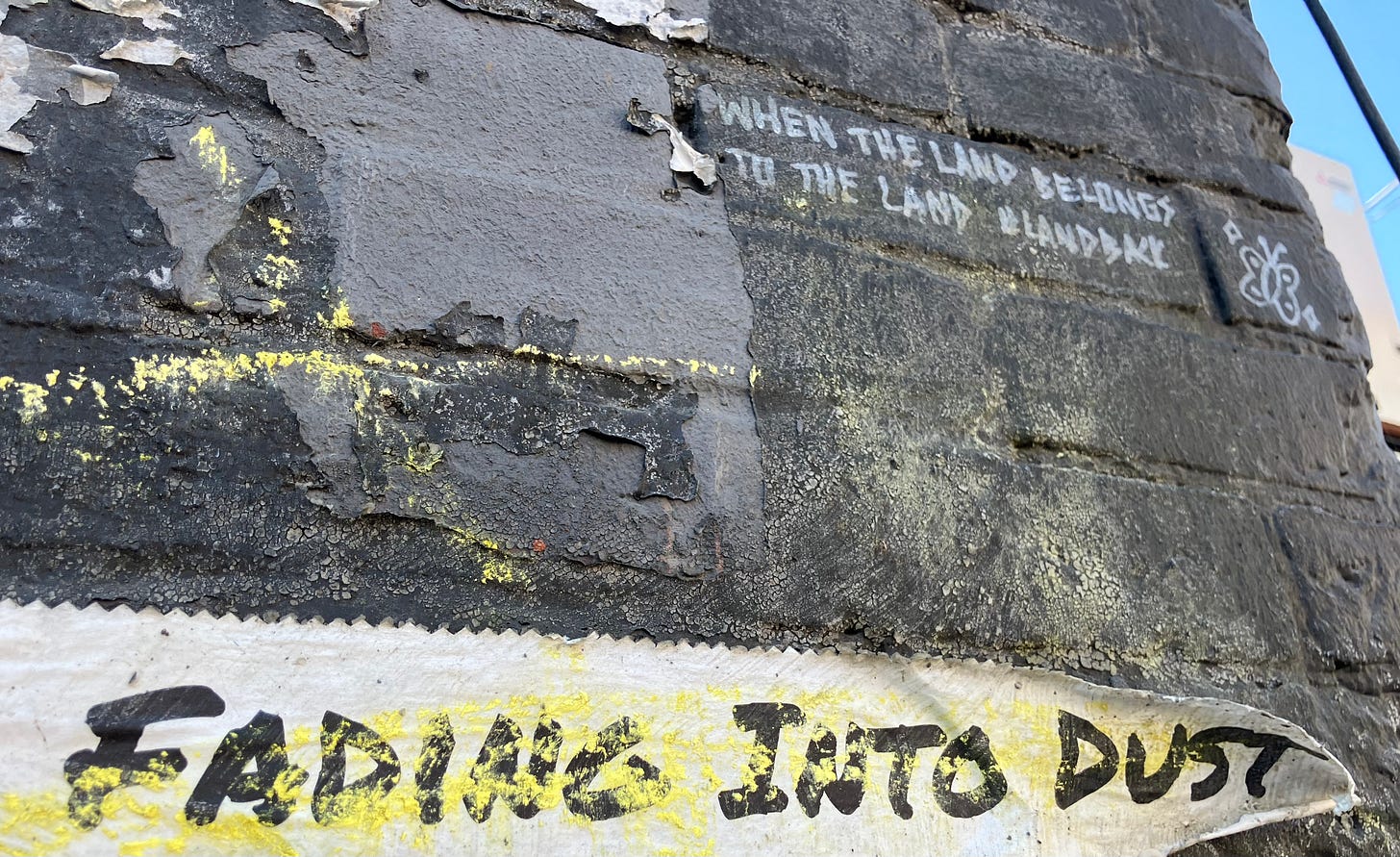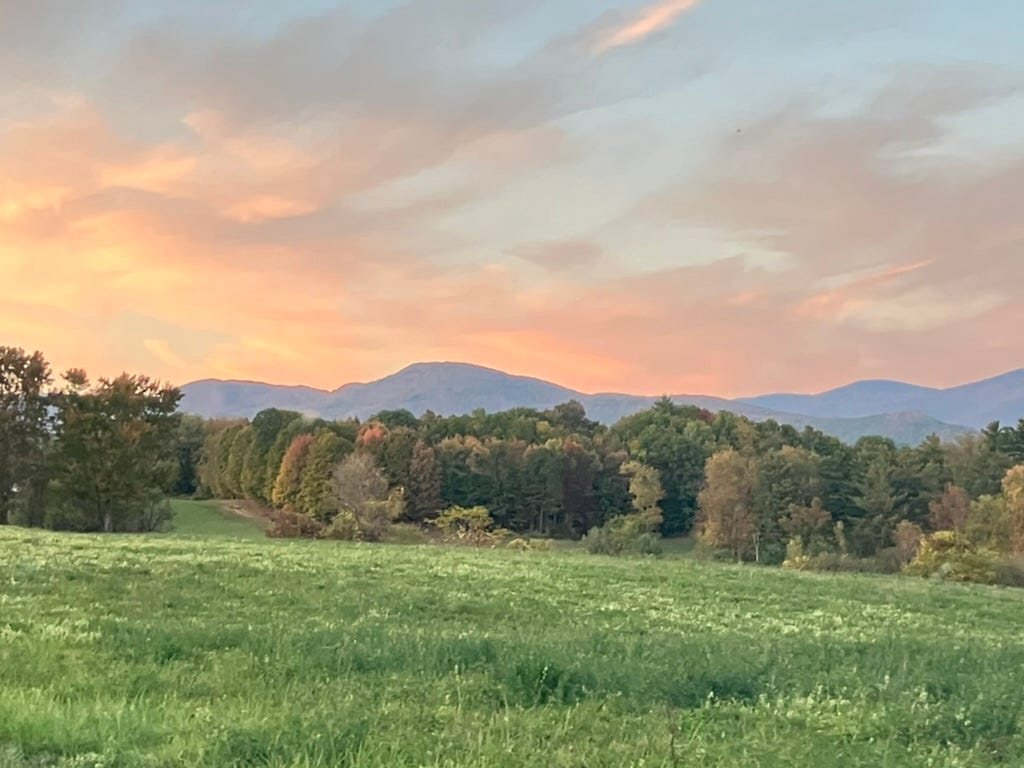I write from a somewhat unplanned detour home to Vermont. Our older kid has earned a big honor that we all want to celebrate together, and the timing allows for some other regional work before I head back north (fun fact: if I say ‘north,’ you know what I mean, but the truth is that Newfoundland is a little north and mostly way, way, way east).
And I’m sitting here with my face in my hands, trying to figure out what to say to you.
At these moments, I often find it’s best to begin with the hardest part.
Which is: I am finding it incredibly difficult to draft consent documents for human subject research given the ambient political conditions that we in the U.S. are dealing with.
Consent documents in the context of university-sponsored research arise from historical throughlines including the Tuskegee Institute Syphilis Studies, American liberal institutionalism and its governance structures and regulatory impulses, and 20th century commitments toward individual liberty and self-determination as fundamental values along with an obligation for researchers to first do no harm.
These values still exist.
But the risks have changed. The template forms I am asked to fill out are artifacts of a different ambient reality.
And I’m scared.
I’m scared for the people I’m working with. I’m scared for the sustainability of the institutions we love. I’m scared for my family. I’m scared for myself.
How do we do meaningful consent in any direction when we’re all really scared?
And there are also values, things that I and others deeply hold, that weren’t well represented by individual consent processes in the first place. These structurally orphaned values include collectivity, justice, reparations in property, and iterative relational repair.
And so I wonder, what are we trying to do here anyway? I mean this in a sense that extends far beyond my research- I am gesturing here toward larger collective projects, shared commitments that give my academic work any meaning it may eventually have.
Are we trying to keep going, to keep doing what we do, for as long as possible?
Are we trying to have the biggest impact that we can right now?
Are we hoping to have staying power in the longer run?
Are we trying to protect individuals, communities, heritage, built space, ritual and worship, financial assets, relationships, our good names, some or all of the above, or something else entirely?
What might success actually look like?
And I feel somewhat alone in asking these things, by which I mean that I feel like I’m articulating alone, worrying alone, struggling alone.
And I probably am doing these things solo, in some sense, but I suspect that I do not have to be. I doubt I’m the only one concerned with these kinds of questions.
And it’s not like I don’t have committed partners in this work.
Is there something about this era that tends to leave those of us who articulate bigger questions feeling lonely?
Am I falling into the neat traps of individualism, trying to use my brain and heart to maverick a solution that will come with time and collectively?
I suspect, honestly, that the answer to both of those questions is “yes.”
-
In the meantime, there is much work to be done, all over the place.
And there is much that cannot be written here, or in any of the old places, or in the ways that we used to use words, brashness forward.
Truth is dangerous now; straightforward maps will lead others to our cities; this is a time of subtlety and side work.
What does meaningful consent look like when the forms to signify its existence have outlived the spirit of the institutions that created them?
What does meaningful consent look like at the functional end of democracy as we have known it?
And what is a blog for, here and now?
(To tell stories. To ask questions. To beat the drum. To give the watch words.)
j



I have some thoughts :-)
Could informed consent in this era mean sharing enough information so someone can best decide how to be brave?
If discernment is the better part of valor, and this is an era of necessary bravery, then maybe I would want to discern how bravery could contribute to a risk but also how it can contribute to a rise. Risk is always a bit unknown; so is success.
Absolute safety is always an illusion; sometimes it is a less convincing one. What a time to be alive.
I too have thoughts, though at this point they feel muddled…as I am almost certainly leaving a program that has decided consent is not relevant when it comes to doctoral students choosing whether or not to place themselves in harm’s way (in this case, Florida, with few meaningful safety measures). There is so much that we currently have no agency to consent to (or not); it feels imperative to me to preserve consent wherever possible. Maybe that is mostly outside of institutions, or at least only in those willing to take the risk of doing what is right in the face of pressure to do what is wanted by the powers that be.